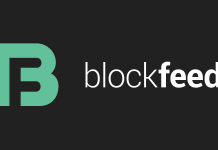Jincor is a digital platform that promises to make corporate cryptocurrency payments truly feasible.
Jincor, an aspiring blockchain startup from Russia, is developing a decentralized
intercorporate ecosystem, which aims to make cryptocurrencies and smart contracts an integral part of global business interactions, saving its users the trouble and expenses of their implementation.
Jincor team positions itself as a company solving a real-world problem, instead of abusing the hype of blockchain. The company’s product is a full-fledged digital jurisdiction, equipped with all innovative features one might need when doing business, including intra- and intercorporate cryptocurrency payments, smart contract templates, e-documents, digital signatures and even a decentralized arbitration system for settling possible disputes.
“In the beginning it was a concept of a unified intercorporate platform. Before setting up Jincor we were trying to build business on vertical farming in Russia,and that involved constant communication with hundreds of companies every day,“ says Jincor co-founder Vagan Abelyan, explaining how the idea for the platform came about.
“And every time it was very frustrating to reach to those companies because if you need to find an individual, you just go to Facebook or LinkedIn, but when you need to find a company, there is nowhere to go and it turns out to be a real problem.“
Later on, with the sudden outbreak of blockchain and cryptocurrency technologies, it became clear that Jincor has the potential to evolve into something much bigger, rather than just a communication tool. In spite of the fact, that thousands of companies all around the world, like Microsoft, Reddit, and Overstock, are already accepting payments in cryptocurrencies, there are still no adequate solutions on how to embed this technology into the legal environment and make it safe and feasible for organizations. And that is what
Jincor is going to change, according to Abelyan.
“The demand for cryptocurrencies is, obviously, high,“ he says of the issue Jincor is trying to solve. “But there are actually no services for conducting b2b cryptocurrency payments with due regard for corporate needs. There are actually no services offering user verification and implementing ‘know your customer principle, which is necessary to avoid possible prosecution and official harassment, such as that of BTC-E.“
Thus, aside from corporate and intercorporate communications and establishing new business contacts, Jincor will let organizations make cryptocurrency transactions fully transparent: companies will know exactly, who they pay to. On the top of that, the platform allows to maintain e-document flow, use multisig wallets and create smart contracts for regular business procedures (from paying wages to organizing goods delivery) in a user-friendly interface, so that any technology-naive user will be able to do this on his own.
Then, should any disputes related to the smart contracts execution come about, the participants can also appeal to a decentralized arbitration system, which allows to settle arising issues right within the platform.
According to another Jincor cofounder Vladislav Kirichenko, in May 2016 the company has raised $400k in seed funding from private investors, and at the moment the product is going through a beta-testing phase with a public release set for September 2017. Current functionality of the platform includes basic “unblockchained“ features, like company registration, sending invitations to the employees, corporate messaging in direct chats or end-to-end encrypted channels and establishing new business contacts with a built-in search by location and industry.
In order to further the development of the platform, the team is planning to raise $13,5 mln by running an ICO campaign, which will start on August, 21st.
After the crowdsale Jincor plans to develop cryptocurrency payments, smart contracts and e-documents.
Jincor business model is a classic freemium with corporate and intercorporate communications available for free, and advanced features, mostly blockchain-powered ones, well be fee-based. The tricky part is that payments for these features will be accepted only in JCR tokens emitted during the ICO and thereby the value of these tokens will be in direct correlation with the popularity of the platform.
To learn more about: Jincor.com











